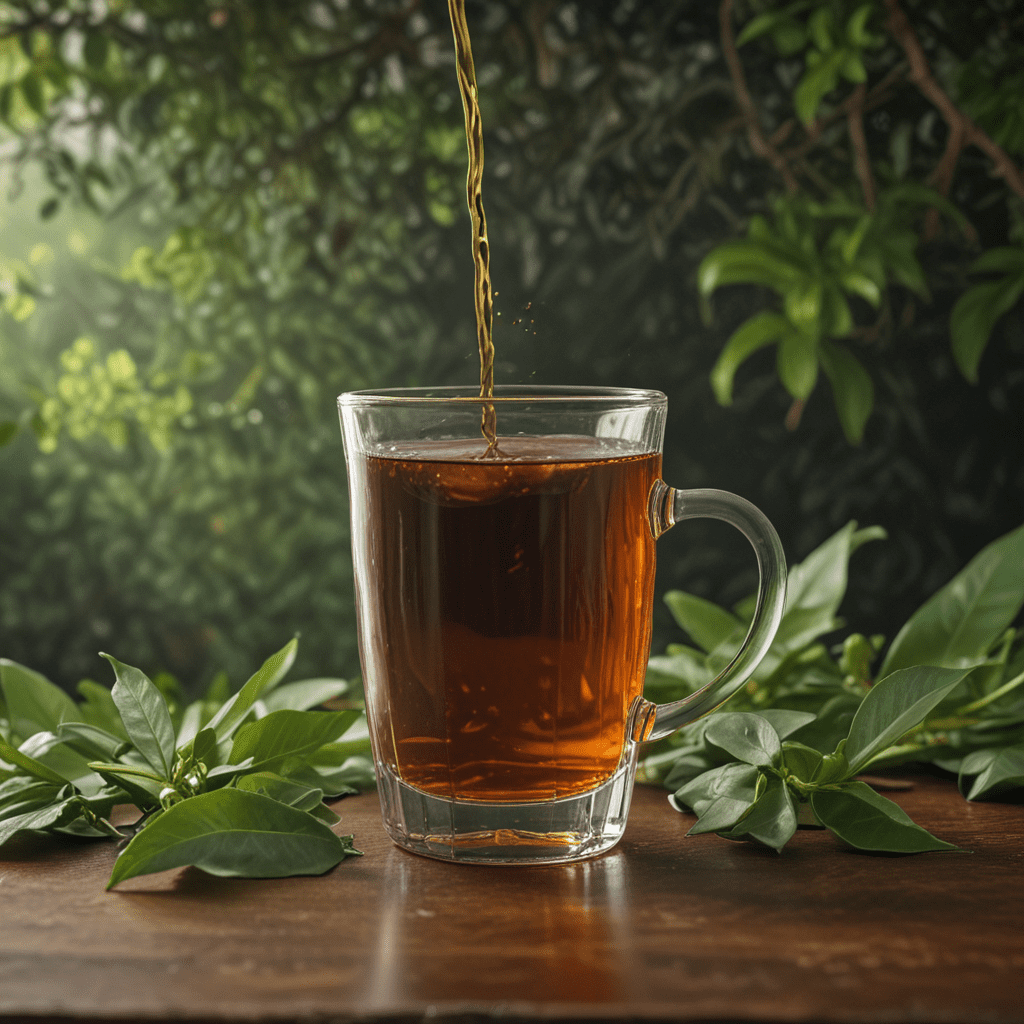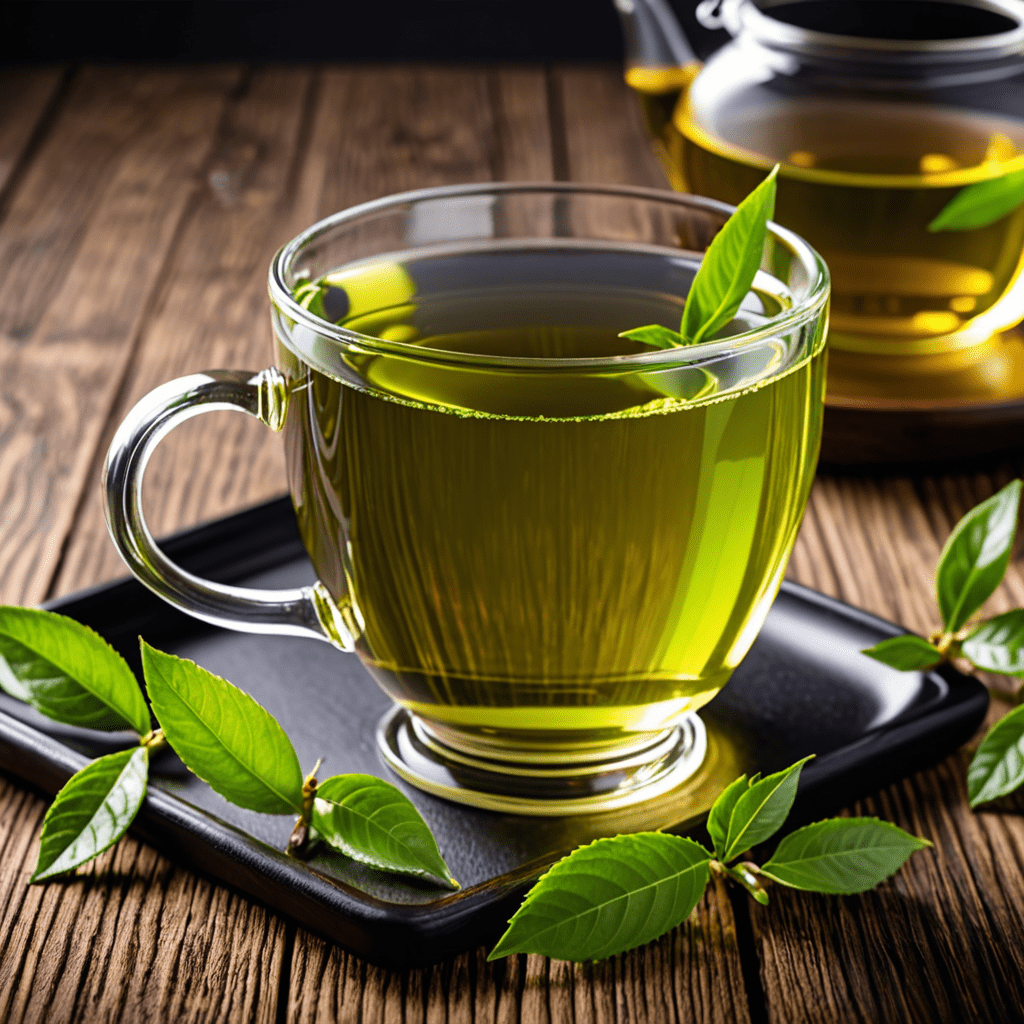Introduction: The Allure of Ceylon Tea
Ceylon tea, the very mention of it conjures up visions of a rich, golden brew steeped in history, tradition, and a taste that has captivated tea aficionados worldwide. For over 150 years, the enigmatic island of Sri Lanka, once known as Ceylon, has been synonymous with this exquisite beverage, a tribute to its pristine growing conditions and the dedication of its tea artisans.
Historical Roots: A Legacy of Tea Cultivation
The origins of Ceylon tea can be traced back to the mid-19th century when Scottish planters introduced tea plants to the island's central highlands. The region's unique climate, with its ample rainfall and cool temperatures, proved ideal for tea cultivation, and soon tea estates began to flourish across the country. By the early 20th century, Ceylon tea had gained global recognition, becoming one of the most sought-after and celebrated teas in the world.
Geographic Splendor: The Tea Gardens of Sri Lanka
The tea gardens of Sri Lanka are a testament to the island's natural beauty. Nestled amidst rolling hills and lush greenery, these meticulously manicured estates are a symphony of colors and textures. Tea bushes, perfectly pruned into neat rows, blanket the slopes, creating a vibrant tapestry that stretches as far as the eye can see. The diversity of Sri Lanka's tea-growing regions results in a wide range of flavors and aromas, each with its own distinctive character.
Unique Characteristics: Understanding the Flavors and Aromas
Ceylon tea is celebrated for its complex and nuanced flavor profile. The teas produced in Sri Lanka's high-altitude regions are renowned for their bright, brisk character with a hint of astringency, while teas from the low-altitude gardens are mellow and smooth, with pronounced floral and fruity notes. The unique combination of climate, soil conditions, and plant varieties gives each Ceylon tea its inimitable taste and aroma, a testament to the artistry of its cultivators.
Artisanal Craftsmanship: The Art of Tea Plucking and Processing
Tea production in Sri Lanka is an intricate art, passed down through generations of skilled tea pluckers and processors. Tea leaves are harvested by hand, ensuring only the finest two leaves and a bud are selected, a delicate process that requires precision and expertise. After careful plucking, the leaves undergo a meticulously controlled process of withering, rolling, oxidation, and drying, each step meticulously monitored to preserve the tea's inherent qualities and develop its distinctive flavors.
Cultural Significance: Tea as an Integral Part of Sri Lankan Life
Tea is deeply ingrained in the cultural fabric of Sri Lanka. It is a beverage enjoyed across the country, from bustling cities to remote villages. Tea plantations provide employment and sustenance to a large portion of the population, and the tea industry plays a vital role in the nation's economy. Beyond its economic significance, tea holds a special place in Sri Lankan society, often served as a gesture of hospitality and shared during social gatherings.
Economic Impact: The Contribution of Tea to Sri Lanka's Prosperity
The tea industry has been a cornerstone of Sri Lanka's economy for over a century. Tea exports account for a significant portion of the country's foreign exchange earnings and provide employment for millions of Sri Lankans. The industry also supports numerous ancillary businesses, such as packaging, transportation, and tourism. The economic prosperity generated by the tea industry has played a crucial role in Sri Lanka's overall development.
Sustainability and Conservation: Preserving the Tea Heritage
In recent years, there has been a growing focus on sustainability and conservation in the Sri Lankan tea industry. Tea plantations are actively implementing sustainable practices to protect the environment and preserve the unique ecosystems that support tea cultivation. These practices include soil conservation, water management, and the responsible use of fertilizers and pesticides. By embracing sustainability, the tea industry ensures the longevity of its heritage and the well-being of future generations.
Tourism and Experiential Tours: Immersing in the World of Ceylon Tea
Tea tourism has emerged as a popular way for visitors to experience the rich culture and traditions surrounding Ceylon tea. Guided tours of tea plantations offer a glimpse into the meticulous process of tea cultivation and processing. Visitors can witness firsthand the artistry of tea pluckers and learn about the different varieties of tea produced in Sri Lanka. Tea-tasting sessions allow guests to sample a wide range of Ceylon teas and discover their unique flavors and aromas.
Conclusion: The Enduring Legacy of Ceylon Tea
Ceylon tea is a testament to the harmonious blend of nature, tradition, and human ingenuity. Its unique flavor and aroma, coupled with its cultural and economic significance, have made it an enduring symbol of Sri Lanka. As the world continues to embrace the art of tea appreciation, Ceylon tea remains a beacon of excellence, a timeless treasure that captures the essence of this enchanting island nation.
Frequently Asked Questions
What is the difference between Ceylon tea and other teas?
- Ceylon tea is a specific type of tea grown in Sri Lanka, formerly known as Ceylon. It is renowned for its distinctive flavor and aroma, thanks to the unique climate and soil conditions of the region.
How is Ceylon tea processed?
- Ceylon tea undergoes a meticulous process of withering, rolling, oxidation, and drying. This carefully controlled process preserves the tea's inherent qualities and develops its distinctive flavors.
What are the different types of Ceylon tea?
- Sri Lanka produces a wide range of Ceylon teas, each with its own unique character. The main types include black tea, green tea, and white tea.
How can I enjoy Ceylon tea?
- Ceylon tea can be enjoyed in various ways. It can be brewed as a hot beverage or chilled and served as iced tea. It pairs well with a variety of foods, from pastries to savory dishes.
Where can I buy Ceylon tea?
- Ceylon tea is available at specialty tea shops, online retailers, and select grocery stores. Look for teas that are labeled "Ceylon tea" or "Sri Lankan tea."



